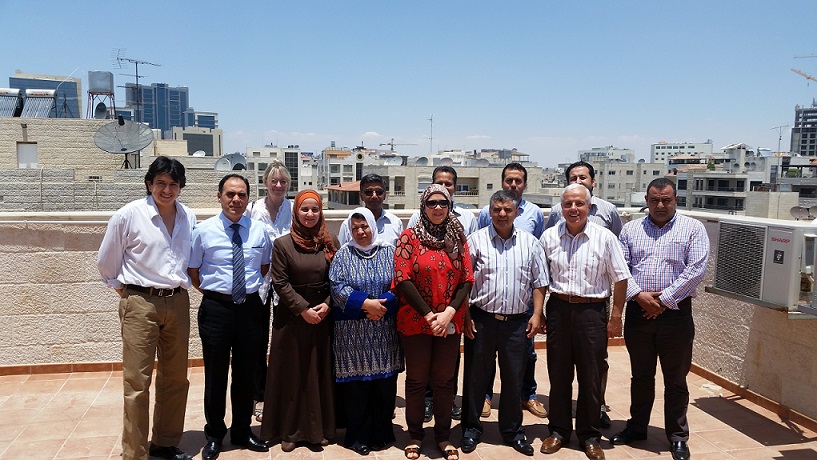By Roberto Telleria (ICARDA)

The Global Futures and Strategic Foresight Program held a workshop on “Groundwater and bio-economic simulations of relevant wheat technologies for Tunisia and Jordan” in Amman, Jordan from 16 to 17 June, 2015, hosted by the International Center for Agricultural Research in the Dry Areas (ICARDA). The purpose of the workshop was to define groundwater and wheat scenarios for bio-economic simulations using the IMPACT model, specifically for Jordan and Tunisia.
In this workshop, scenarios for groundwater utilization and promising wheat technologies were defined using recently updated data on wheat and groundwater utilization in Tunisia and Jordan. The focus was on wheat varieties that improve water efficiency. Scenarios were set for medium-long term simulations (up to 2050), with various climate change assumptions. Options for improving groundwater use for irrigation in the two countries were also explored based on an upgraded IMPACT model.
The workshop also aimed at increasing collaboration between the International Water Management Institute (IWMI), ICARDA and national partners from the Government of Tunisia and the Government of Jordan. The workshop enhanced national partners’ capacities in groundwater and bio-economic modeling work, especially for identifying relevant promising technologies to make cropping systems more profitable and resilient in the context of climate change. Participants included representatives from the National Center for Agricultural Research and Extension (NCARE) and the Ministry of Water and Irrigation of the Government of Jordan, the National Agricultural Research Institute of Tunisia (INRAT) and the Ministry of Agriculture of the Government of Tunisia, as well as CGIAR Centers ICARDA and IWMI.
Please see here for the workshop agenda.





